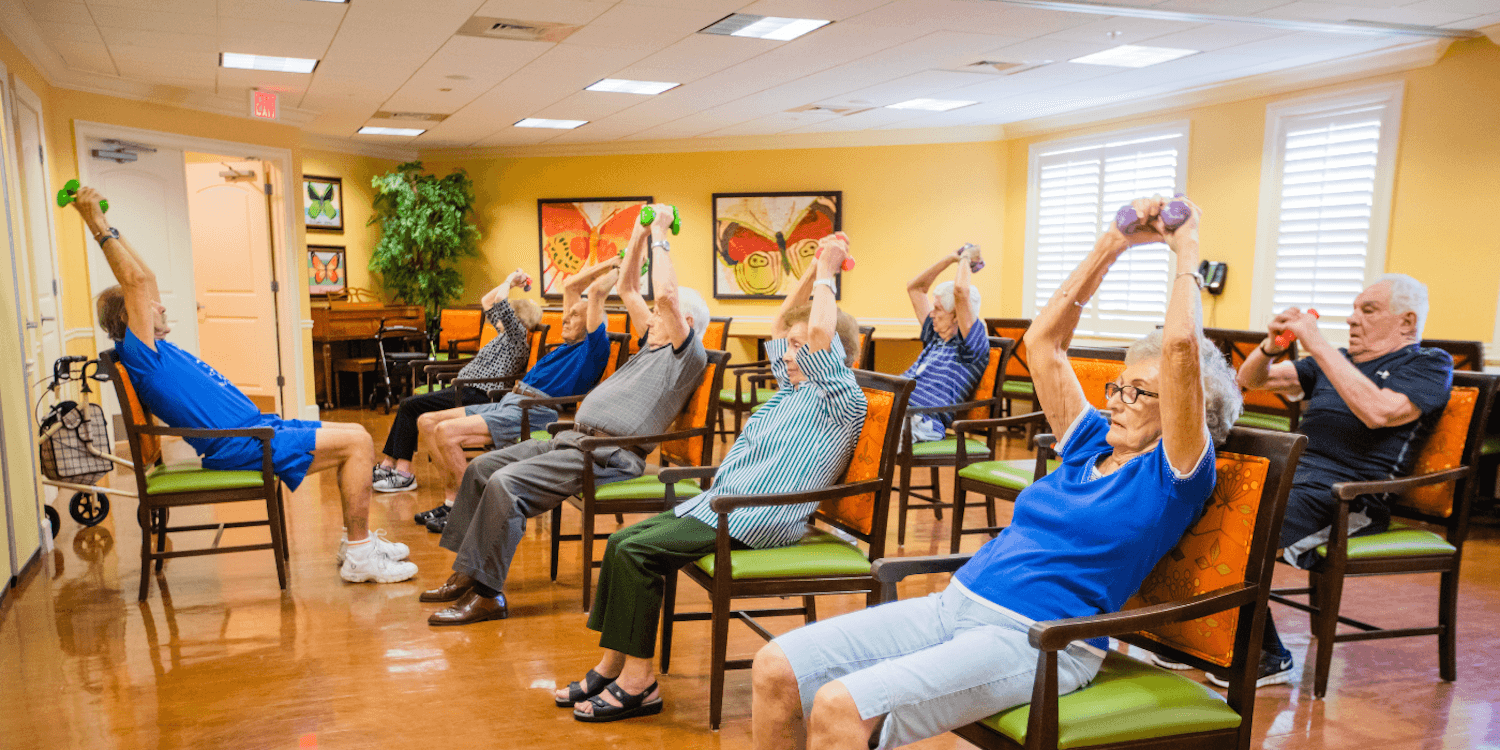The Benefits of Picking Professional Alzheimers Care Charlotte Facilities
The Benefits of Picking Professional Alzheimers Care Charlotte Facilities
Blog Article
Developing a Safe and Encouraging Atmosphere for Alzheimer's Care
The creation of a risk-free and encouraging environment for people with Alzheimer's is critical in enhancing their top quality of life. This entails not just physical adaptations within the home, such as decreasing threats and incorporating familiar components, but also the execution of organized routines and significant activities that deal with their cognitive demands. Understanding the mental and emotional measurements of care can considerably influence their sense of security and link. Discovering these complex methods can reveal critical understandings right into effective caregiving strategies that may change the daily experiences of both individuals and caregivers.
Understanding Alzheimer's Demands
Frequently, individuals with Alzheimer's illness display a variety of needs that require customized strategies to care. As the condition advances, cognitive decline materializes in numerous methods, affecting memory, reasoning, and even the capacity to carry out everyday activities. Caretakers have to recognize these advancing needs to offer suitable assistance and ensure a better of life for those affected.
One critical aspect of understanding Alzheimer's requirements is identifying the value of routine and knowledge. Individuals commonly find convenience in established patterns, which can decrease anxiety and confusion. Caretakers need to make every effort to develop organized daily timetables that integrate meaningful activities lined up with the person's passions and capacities.
Furthermore, efficient interaction is vital. People with Alzheimer's may have a hard time to share themselves or comprehend intricate language. Caretakers need to utilize basic, clear language, use non-verbal cues, and method active paying attention to foster understanding and link.
Lastly, social and emotional needs can not be forgotten. Supplying possibilities for social interaction and preserving partnerships can considerably boost emotional health. Caregivers need to motivate interaction in neighborhood activities or family members gatherings, promoting a sense of belonging and function. Recognizing these varied requirements is necessary for producing a supportive care setting.
Designing a Safe Home
Creating a risk-free home for people with Alzheimer's disease is crucial to decreasing threats and advertising self-reliance. Ensure that paths are well-lit and clear, as correct lighting decreases disorientation and boosts flexibility.
Including flexible attributes is also essential. Set up grab bars in restrooms and near stairways, and consider utilizing non-slip floor coverings in wet locations. Additionally, making use of different colors for floors and wall surfaces can aid in differentiating spaces, aiding to mitigate confusion.
Experience is crucial for individuals with Alzheimer's. Customizing the atmosphere with familiar objects and pictures can reinforce a feeling of belonging and safety and security - Alzheimers Care Charlotte. It is likewise useful to have a designated area for daily activities, such as reading or crafting, which can provide structure to their day
Last but not least, carrying out a secure exterior room allows for risk-free expedition while getting in touch with nature. By attentively developing the home atmosphere, caretakers can considerably boost the lifestyle for individuals living with Alzheimer's illness.
Enhancing Communication Skills

Non-verbal interaction, including faces, gestures, and touch, plays a crucial duty in communicating compassion and understanding. Keeping eye call and a calm temperament can enhance the comfort level of the person, promoting a feeling of security.
Moreover, it is important to practice energetic listening. This includes being totally existing, revealing patience, and enabling the person to express themselves without disturbance. Rep may be needed; caregivers ought to be prepared to take another look at questions or topics, as people with Alzheimer's may battle with memory recall.
Furthermore, making use of visual aids or hints, such as pictures or acquainted items, can assist in recognition and interaction. Inevitably, boosting communication skills has to do with developing trust fund and developing an atmosphere where people really feel listened to, valued, and recognized, thus enhancing their high quality of life.
Encouraging Social Communication
Fostering meaningful social interactions can click for more considerably boost the well-being of people with Alzheimer's condition. Engaging with others not just helps battle feelings of isolation but also promotes cognitive function and psychological wellness. Structured social activities, such as team crafts, arts and games, or songs therapy, create chances for residents to get in touch with peers and caretakers, which can bring about improved mood and lowered anxiety.
Creating an inviting environment that encourages socialization is necessary. This can be attained by setting up common areas that assist in interaction, such as cozy seating areas or activity rooms. Additionally, incorporating culturally relevant and familiar tasks can encourage and stimulate memories involvement, permitting individuals with Alzheimer's to really feel more connected to their past experiences.
Moreover, caretakers need to be educated to acknowledge and advertise social involvement among citizens. By prioritizing social interaction, we can dramatically improve the lives of those living with Alzheimer's, promoting a sense of community and belonging.
Sustaining Caretaker Wellness

To sustain caregivers, organizations should offer normal training and instructional sources to improve their understanding of Alzheimer's condition and caregiving strategies. Giving access to break care solutions allows caregivers to take needed breaks, reducing stress and anxiety and fatigue - Alzheimers Care Charlotte. Additionally, cultivating a community through support system can assist in psychological sharing and the exchange of functional recommendations amongst caretakers, creating a network of common assistance
Psychological health sources, such as therapy solutions, can likewise be crucial in dealing with the emotional toll caregiving can take. By focusing on caregiver well-being, we produce a more sustainable caregiving environment that not only profits the caretakers themselves however also improves the overall top quality of treatment received by individuals with Alzheimer's. Inevitably, sustaining caregivers is an important part in fostering a caring and effective care setting.
Conclusion
In verdict, the creation of a supportive and secure atmosphere for people with Alzheimer's is important to boosting their top quality of life. By focusing on security via thoughtful style, fostering psychological wellness with familiar elements, and advertising interaction via structured regimens, caregivers can dramatically impact the overall experience of those impacted by this condition. Supporting caregiver well-being is crucial, as it ultimately adds to an extra caring and efficient treatment atmosphere.
Repetition might be required; caregivers need to be prepared to take another her comment is here look at subjects or concerns, as people with Alzheimer's may struggle with memory recall.

Report this page